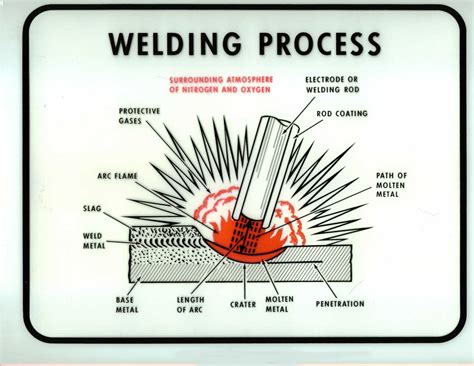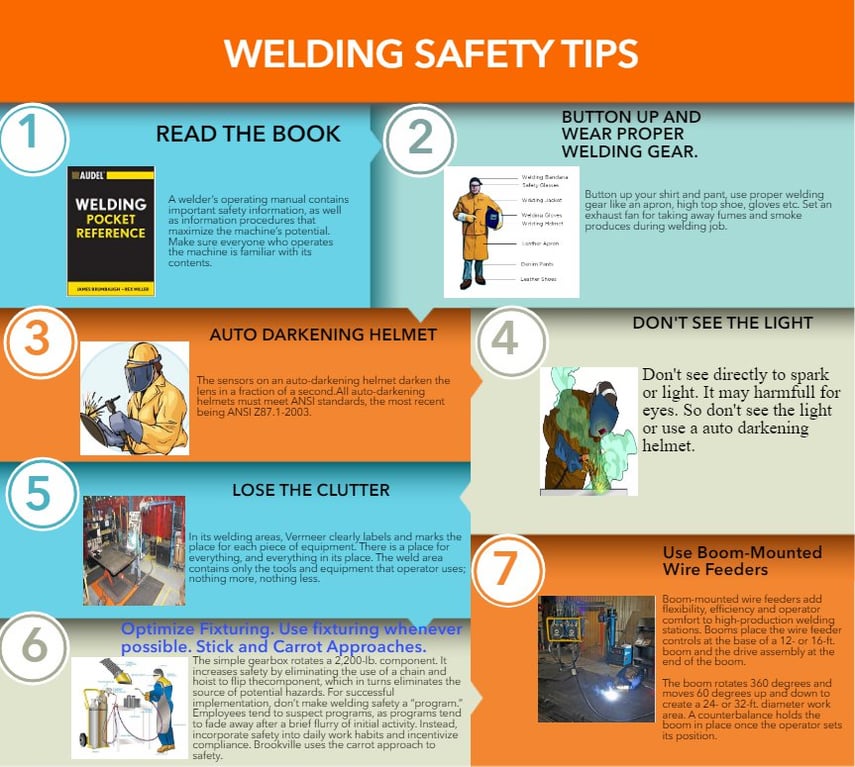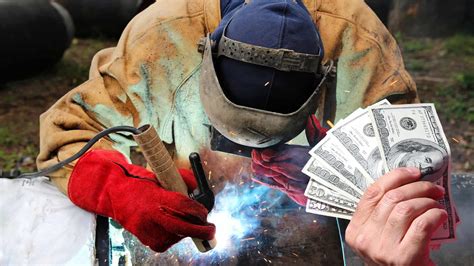The welding profession has long been a vital part of various industries, including construction, manufacturing, and oil and gas. With the increasing demand for skilled tradespeople, many individuals are considering a career in welding. One of the most common questions asked about this profession is: do welders make good money? In this article, we will delve into the world of welding and explore the salary and career insights of this in-demand profession.
The Importance of Welding in Various Industries
Welding is a crucial process in many industries, as it enables the creation of strong and durable joints between metal parts. The demand for skilled welders is high, and it continues to grow as infrastructure projects, manufacturing, and construction activities increase. Welders play a vital role in ensuring the safety and quality of various structures, such as bridges, buildings, and pipelines.

Types of Welding Careers
There are several types of welding careers, each with its own unique set of skills and salary ranges. Some of the most common types of welding careers include:
-
Shielded Metal Arc Welding (SMAW)
+ Also known as "stick" welding, this process uses a consumable electrode covered in a flux to protect the arc and molten metal from atmospheric gases. -
Gas Metal Arc Welding (GMAW)
+ Commonly known as "MIG" welding, this process uses a continuous wire feed and an inert gas to shield the arc. -
Gas Tungsten Arc Welding (GTAW)
+ Also known as "TIG" welding, this process uses a non-consumable tungsten electrode and an inert gas to shield the arc. -
Flux Cored Arc Welding (FCAW)
+ This process uses a special electrode that produces a flux to shield the arc and molten metal. -
Submerged Arc Welding (SAW)
+ This process uses an electrical arc to melt the metal, which is then covered in a flux to protect it from atmospheric gases.
Welder Salary Ranges
The salary range for welders can vary greatly depending on factors such as location, industry, experience, and type of welding process. Here are some approximate salary ranges for welders in the United States:
-
Entry-Level Welders
+ $30,000 - $45,000 per year -
Experienced Welders
+ $45,000 - $70,000 per year -
Senior Welders
+ $70,000 - $100,000 per year -
Welding Supervisors
+ $80,000 - $120,000 per year

Benefits of a Welding Career
A welding career can offer numerous benefits, including:
-
Job Security
+ The demand for skilled welders is high, and it continues to grow. -
Competitive Salary
+ Welders can earn a competitive salary, especially with experience and specialized skills. -
Opportunities for Advancement
+ Experienced welders can move into supervisory roles or start their own businesses. -
Variety of Work
+ Welders can work on a variety of projects, from construction to manufacturing.
Challenges of a Welding Career
While a welding career can be rewarding, it also comes with its own set of challenges, including:
-
Physical Demands
+ Welding can be physically demanding, requiring long hours on your feet and exposure to heat and sparks. -
Safety Concerns
+ Welders must take safety precautions seriously, as the risk of injury from electrical shock, burns, and other hazards is high. -
Continuous Training
+ Welders must stay up-to-date with the latest techniques and technologies, which can require ongoing training and education.

Getting Started in a Welding Career
If you're interested in pursuing a welding career, here are some steps to get started:
-
Meet the Basic Requirements
+ You must be at least 18 years old and have a high school diploma or equivalent. -
Complete a Welding Program
+ Enroll in a welding program at a vocational school, community college, or technical institute. -
Get Certified
+ Obtain certification from a recognized organization, such as the American Welding Society (AWS). -
Gain Experience
+ Look for internships or apprenticeships to gain hands-on experience.
Conclusion
In conclusion, welders can make good money, with salaries ranging from $30,000 to over $100,000 per year. However, it's essential to consider the physical demands, safety concerns, and continuous training required in this profession. If you're interested in pursuing a welding career, research the different types of welding processes, meet the basic requirements, complete a welding program, get certified, and gain experience.






What is the average salary for a welder?
+The average salary for a welder can range from $30,000 to over $100,000 per year, depending on factors such as location, industry, experience, and type of welding process.
What are the different types of welding processes?
+There are several types of welding processes, including Shielded Metal Arc Welding (SMAW), Gas Metal Arc Welding (GMAW), Gas Tungsten Arc Welding (GTAW), Flux Cored Arc Welding (FCAW), and Submerged Arc Welding (SAW).
How do I get started in a welding career?
+To get started in a welding career, you must meet the basic requirements, complete a welding program, get certified, and gain experience.
